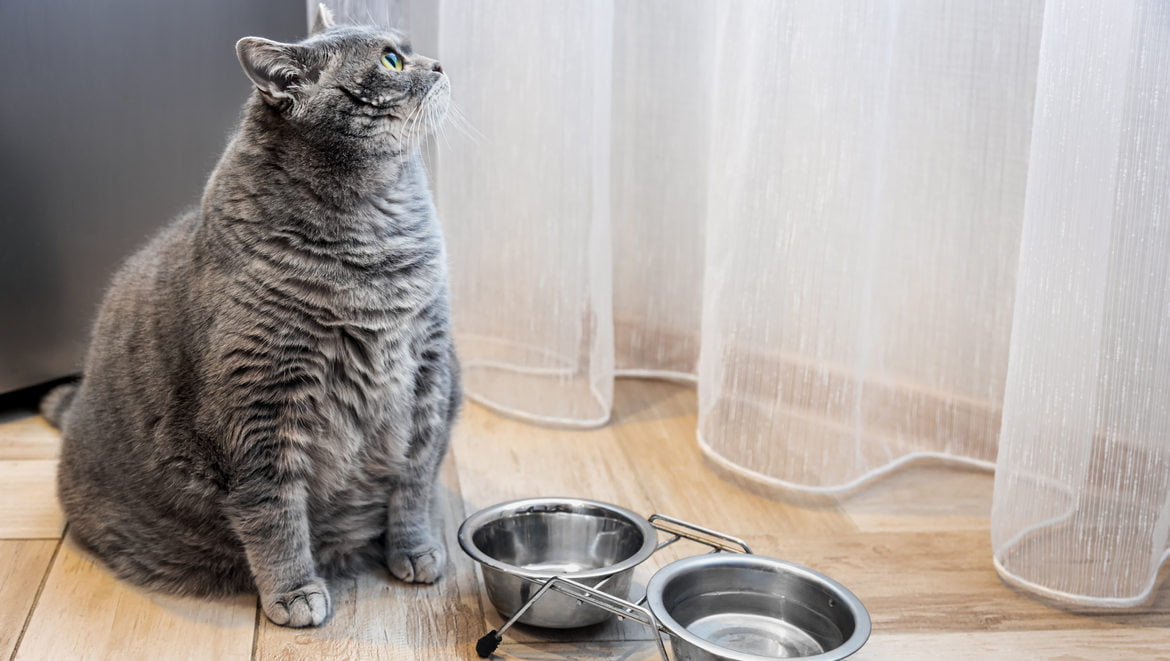Jan 24, 2022, 3:10 PM

We all find overweight or obese pets beautiful and adorable, but obesity can create major animal problems, just as it can in humans. It's always a good idea to get your pets checked out, whether they're a plump cat or a rotund puppy. The medical checkup will provide you with a better understanding of the causes and how you may assist your pets in losing weight.
While a pet's appropriate weight varies greatly depending on breed and age, some tend to be overweight. A pet within the healthy weight range will have a little bulge in its belly when viewed from above. When you look at your pet from the side, their abdomen should tuck upwards toward their body rather than sink toward the floor.
The body condition score is commonly used to identify whether or not a pet is overweight. They have a distinct waist, and you can feel their ribs when you touch them. Overweight pets are those with a score of 6 to 7. Their bodies are surrounded by excess fat, making it difficult to feel their ribs. They don't have to have a well-defined waist. Obese pets have a scale score of 8 or 9. They don't have a defined waist, and their ribcage is hidden beneath a thick layer of fat, making it impossible to feel them.
Risks of Being Obese
Obese pets are more likely than to acquire certain health problems. Many of the issues that overweight pets face is similar to those that obese people face:
Higher Risks of Diabetes
Diabetes is a common cause of obesity in pets. When a pet develops type 2 diabetes, the hormone insulin is produced, and if the pet does not receive correct therapy or medical attention, kidney damage and liver failure can occur. Insulin injections and special diets are used to address this lifelong illness.
Osteoarthritis
This is a prevalent condition in senior cats and dogs, but it can also be noticed in overweight pets. Because of the additional pressure their extra pounds place on their joints, Arthritic cats and dogs may not be as mobile as they previously were, making jumping or climbing up and down stairs difficult. Even though it can be treated with correct nutrition and medication, there is no cure for this ailment.
Cancer
Obese pets are more likely than healthy pets to get cancer. Helping your pet lose weight can reduce their cancer risk and lengthen their life.
Reduced Life Quality
Obesity can cause lower quality of life in pets since they are more likely to acquire dangerous medical conditions that could limit their lifespan. It is critical to examine them thoroughly.
How to Manage and Aid Weight Loss in Your Pet?
Following a thorough evaluation of your pet, your veterinarian will devise a strategy to help your pet achieve a healthy weight. Even while you attempt to minimize the number of calories your dog or cat consumes, you want to make sure they get the nutrients they require from their diet. Calibra Dog Expert Nutrition, healthy dietary will be recommended by the doctor. When it is important to lower and maintain optimal weight in dogs prone to obesity, light-dry food with reduced caloric content is suited to the requirements of specific canine nutrition. It's made with rice and high-quality chicken protein. If your dog has Diabetes, your veterinarian may recommend Calibra VD Dog Diabetes/ Obesity.
In addition to the dietary plan, you'll need to engage your pet in exercises such as brisk walks and other similar activities to aid boost mobility, movement and burn calories. Keep an eye on your pet once they've reached their target weight to ensure they don't gain it again. It's also crucial to keep an eye on your pet's overall health.
